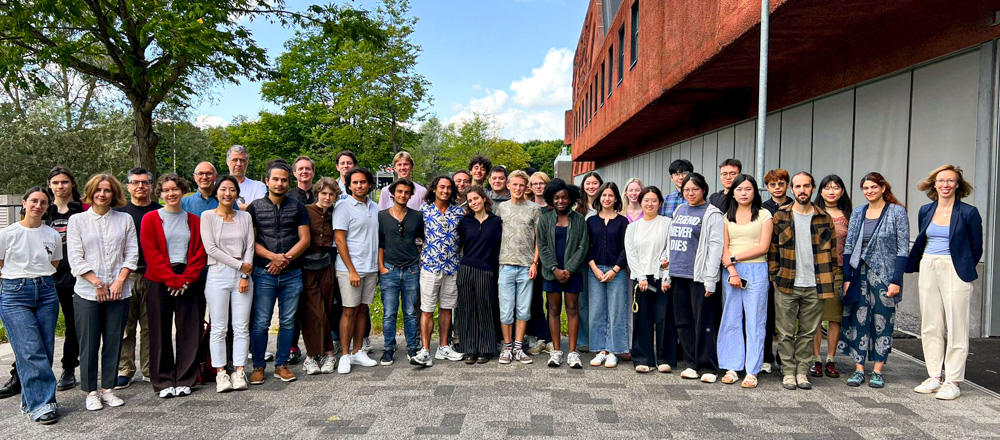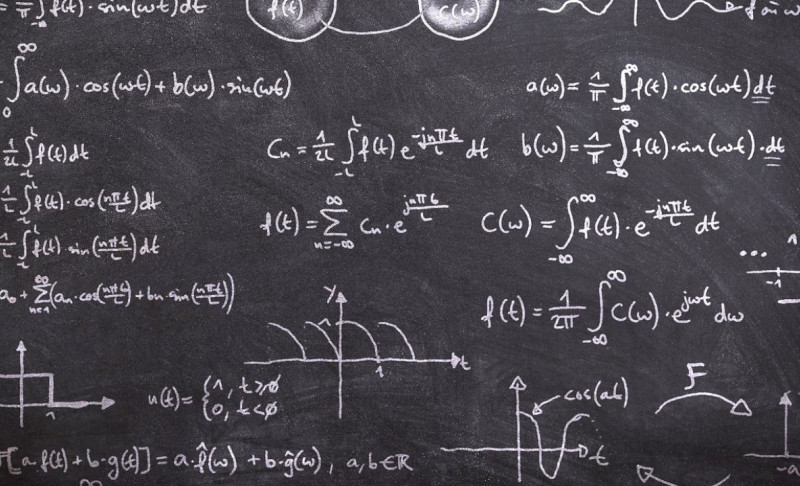
Description
The world around us is complex. Complexity science seeks to understand how large collections of connected elements link together, forming more than just the sum of their parts. The science of complex systems is a modern, evolving field that draws from various disciplines such as physics, biology, medicine, social sciences, economics, computer science and engineering.
As it turns out, very different systems such as Earth's climate, the stock market or neurons in the brain tend to show similar behavior when viewed through a complex systems lens. An integrated way of thinking is thus essential for a deeper understanding of the complex challenges humanity is facing. Learning about complex systems is a great way to broaden your perspective beyond your typical field of study, regardless of your scientific background.
When describing a complex system, the first step is to abstract the specific system into similar elements and the interactions between them. The question is then: how does the behavior of the system as a whole depend on the nature and structure of the interactions, as well as the properties of the individual elements? The fact that the structure of interactions itself is important has given rise to the relatively young theory of complex networks.
Sometimes the interactions lead to emergent behavior that cannot be explained by the collection of individual elements alone. How can we predict these dynamics and control complex systems in the real world? For example, complexity science studies which properties of a complex system are most vulnerable to change or what can be done to make the system more resilient. This becomes particularly important when studying critical transitions between different states, as relevant for climate tipping points, ecosystem shifts, pandemics, sociopolitical change or disruptive innovations.
In this course, hosted by the Centre for Complex Systems Studies, students come together from various backgrounds for a broad introduction to complex systems. The program consists of interactive lectures and specialist talks, small group projects and guided programming exercises. Lectures will be held by associate members of the Centre, Utrecht University researchers and possibly external guest speakers who actively work on a diverse range of fields and problems in complex systems (see preliminary program below). Check out this video to learn more about the Centre for Complex Systems Studies (CCSS)!
The course will take place from Monday 17 August to Friday 21 August 2026 at the Utrecht Science Park. Participants will be divided into groups to work on the projects. On the last day, each group will present the results of one project. Presenting a final project is required for earning the certificate and credits.
Before the start of the course, we will offer an optional online tutorial to refresh some of the mathematical and computational basics that will be useful to follow the course.
Preliminary program
Day 1 (Monday)
Introduction to complex systems
Day 2 (Tuesday)
Theme: Feedback processes & emergence
Day 3 (Wednesday)
Theme: Theory of networks
Day 4 (Thursday)
Theme: Intervention & adaptation
Day 5 (Friday)
Student presentations
Lecturers
Associate Members of the Centre for Complex Systems Studies (from all faculties of Utrecht University), scientists from Utrecht University and possibly external guest lecturers.
Target audience
No specific knowledge is required, but basic skills in mathematics and programming will be helpful.
The course involves some basic mathematics and programming, but these skills are not required as a prerequisite. During the course, teaching assistants will be available to help with the exercises and answer questions depending on your level. We will also offer an optional refresher tutorial on the relevant mathematical and computational basics that can be accessed online before the start of the course.
In previous years, participants came from various backgrounds including business administration, software engineering, physics, philosophy and neuroscience.
Aim of the course
By the end of the course, the goal is that participants will
- be able to identify and characterize complex systems related to societal, environmental, engineering and scientific problems
- attain a complex systems way of thinking and broaden their interdisciplinary perspective
- have learned basic mathematical concepts and methods needed for complex system analysis, such as elements of dynamical systems theory and the theory of networks
- gain hands-on experience in studying and programming complex systems
Costs
-
Course fee:
€400.00
-
-
Included:
Course + course materials + mealplan
-
Housing fee:
€275
-
Housing provider:
Utrecht Summer School
The fee covers the course costs, as well as all lunches, one social activity including dinner, and drinks plus treats during breaks.
Financial support awards
We are offering a limited number of reduced fee awards to motivated applicants in need of financial support. The award reduces the course fee by 50% to €200. To apply for the financial support award, please indicate this on your application form along with a statement of need.
The deadline for financial support applications is 17 June 2026. Applicants will be notified of the outcome as soon as possible but no later than 22 June 2026.
Additional information
The housing costs do not include a Utrecht Summer School sleeping bag. This is a separate product on the invoice. If you wish to bring your own bedding, please deselect or remove the sleeping bag from your order once you apply for this course.
Application
When applying, you will be asked to upload your CV (max. 2 pages). Additionally, please complete the application form by clicking on this link.
The information you provide will be used to select participants given the limited number of spaces. Most important is that you show your motivation for joining this course! Applications obviously written by generative AI may be disregarded.
For this course you are required to upload the following documents when applying:
-
C.V.
-
Additional Application Form
Tags

